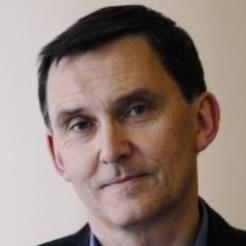The price of a seat at the table of power may be having to bite your lip to stop yourself saying what you really think, but it is a price worth paying, outgoing Navca CEO Kevin Curley said in his final speech to a Navca Conference yesterday.
After 40 years in the Navca movement, Curley will retire in three months’ time and yesterday delivered his final speech to the organisation’s Localism Conference. He first spoke at a Navca event (then NACVS) in 1971.
Curley started his address with a quote from the BFG, and mused: “When I look back on 40 years of local voluntary action I suspect the Big Friendly Giant has been too much of an influence.
"I think it’s always a problem when you work in infrastructure. We work for the local community, for the local charities and neighbourhood groups which bring the communities together – but we are paid largely by the state. Sometimes we cannot always say what we mean. Sometimes we have to bite the bottom lip and stay quiet. Back in the 80s in Hull if you bit the hand that fed you there would be no more food.
“Now of course we have won our seats at the tables. But the price may be that you sign up to a collective position – Cabinet responsibility – and you are not free to say what you want to your member organisations or to the media when the meeting is over.
“But I firmly believe we achieve more at the table inside the town hall than if we stand outside the town hall banging on the door and waving a placard.”
However, he said that compromising on the means should not lead to compromising on the ends, and that people in the sector must stick to their values.
He went on to highlight the “strange, confuse relationships” the sector now has with the private sector, "relationships that arise from bad commissioning of services". He cited the Work Programme as a prime example, asking: “Is this what an independent local voluntary sector should be doing in any case – helping G4S and A4e to maximise their profits from welfare-to-work schemes? Do we really want our relationship with the state brokered by the private sector?”
Read Curley’s full speech here.









